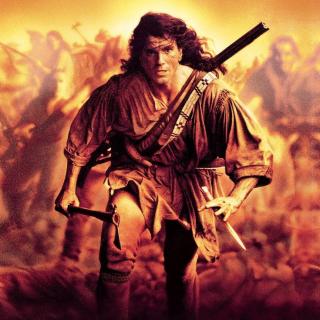
介绍:
CHAPTER XIX.
“Salar.—Why, I am sure, if he forfeit, thou wilt not take his flesh; what’s that good for?
Shy.—To bait fish withal; if it will feed nothing else, it will feed my revenge.”
—Merchant of Venice
The shades of evening had come to increase the dreariness of the place, when the party entered the ruins of William Henry. The scout and his companions immediately made their preparations to pass the night there; but with an earnestness and sobriety of demeanor that betrayed how much the unusual horrors they had just witnessed worked on even their practised feelings. A few fragments of rafters were reared against a blackened wall; and when Uncas had covered them slightly with brush, the temporary accommodations were deemed sufficient. The young Indian pointed toward his rude hut when his labor was ended; and Heyward, who understood the meaning of the silent gestures, gently urged Munro to enter. Leaving the bereaved(失去亲人的;丧失亲友的) old man alone with his sorrows, Duncan immediately returned into the open air, too much excited himself to seek the repose he had recommended to his veteran friend.
While Hawkeye and the Indians lighted their fire and took their evening’s repast, a frugal(节约的,节俭的) meal of dried bear’s meat, the young man paid a visit to that curtain of the dilapidated fort which looked out on the sheet of the Horican. The wind had fallen, and the waves were already rolling on the sandy beach beneath him, in a more regular and tempered succession. The clouds, as if tired of their furious chase, were breaking asunder; the heavier volumes, gathering in black masses about the horizon, while the lighter scud still hurried above the water, or eddied among the tops of the mountains, like broken flights of birds, hovering around their roosts. Here and there, a red and fiery star struggled through the drifting vapor, furnishing a lurid gleam of brightness to the dull aspect of the heavens. Within the bosom of the encircling hills, an impenetrable darkness had already settled; and the plain lay like a vast and deserted charnel-house, without omen or whisper to disturb the slumbers of its numerous and hapless tenants.
Of this scene, so chillingly in accordance with the past, Duncan stood for many minutes a rapt(全神贯注的;专心致志的) observer. His eyes wandered from the bosom of the mound, where the foresters were seated around their glimmering fire, to the fainter light which still lingered in the skies, and then rested long and anxiously on the embodied gloom, which lay like a dreary void on that side of him where the dead reposed. He soon fancied that inexplicable sounds arose from the place, though so indistinct and stolen, as to render not only their nature but even their existence uncertain. Ashamed of his apprehensions, the young man turned toward the water, and strove to divert his attention to the mimic stars that dimly glimmered on its moving surface. Still, his too-conscious ears performed their ungrateful duty, as if to warn him of some lurking danger. At length, a swift trampling seemed, quite audibly, to rush athwart the darkness. Unable any longer to quiet his uneasiness, Duncan spoke in a low voice to the scout, requesting him to ascend the mound to the place where he stood. Hawkeye threw his rifle across an arm and complied, but with an air so unmoved and calm, as to prove how much he counted on the security of their position.
大家还在听

